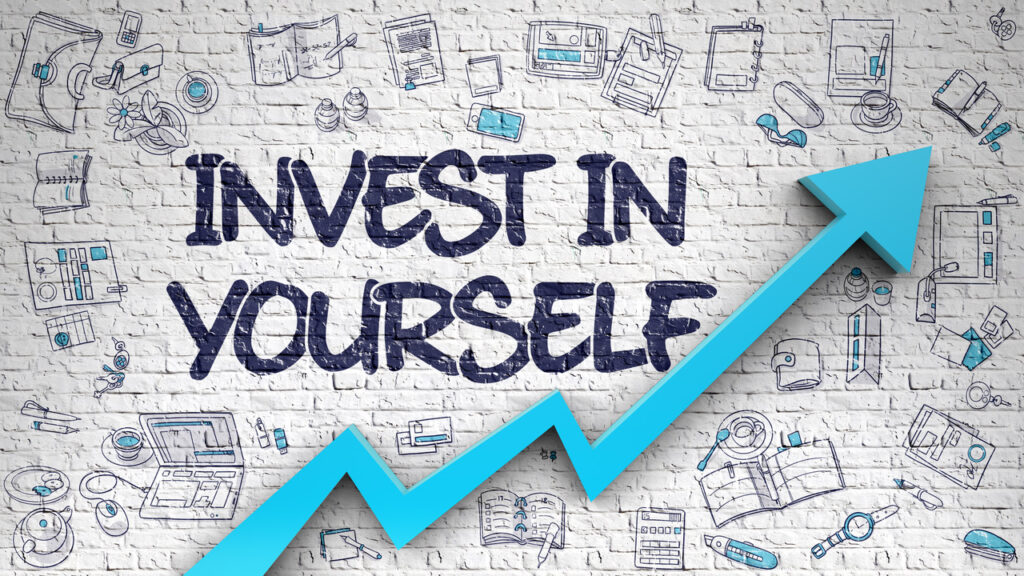
Strategic Health Wealth
Do you pay your mobile phone carrier, landscaper, and massage therapist more than you pay your primary care doctor?
You may—it’s hard to know what portion of your healthcare bill actually goes to your doctor.
There’s a widespread belief that doctors make a lot of money, but primary care doctors often make much less than their highly specialized peers[1] and executives at insurance providers, hospital systems, or pharmaceutical companies[2].
A convoluted, which-shell-is-the-money-under, insurance reimbursement model dominates US medical care today where incentives for short-term profits overshadow long-term societal health gains.
Clearly, there’s a medical catastrophe brewing that requires more than a little pruning. We need to excavate first by asking an important question—why do we spend more on healthcare in the US than any other country but have poorer health outcomes[3]?
The problem is complex. Many corporate interests are at play both within the healthcare system and beyond. In addition, our collective mindset around the role of health insurance is perpetuating the ”factory medicine model” that is widespread today. After all, it’s been the only thing we’ve known—for a while.
What Does Health Insurance Get Us?
Not much, it turns out.
Health insurance does little in terms of ongoing health maintenance and disease prevention.
According to the Centers for Disease Control, approximately 60% of US adults (that’s almost 2 out of 3 of us!) have at least one chronic condition. And given our current lifestyle trends and aging population (~10,000 Americans will turn 65 each day from now through the end of 2029)[4], that percentage is predicted to rise over the years to come.
So if health insurance doesn’t deliver better health outcomes overall, what does it provide?
Health insurance is a tool that may offer some financial protection in the event of a catastrophe, similar to auto insurance. Even then, it is not foolproof as mounting medical bills are still a primary reason for personal bankruptcy, even among those with health insurance[5].
Think about this: If you want your car to run better for longer, you take good care of it. You wash it, put gas in the tank (or charge it!), and replace the tires or other worn down parts as needed. You don’t use your auto insurance to pay for your car’s general upkeep. You only use your auto insurance if something major happens, like you get in an accident or a tree falls on your car.
Our bodies are not cars.
Why do we often treat our bodies worse than we treat our cars, then expect health insurance and the US medical complex to fix us? It is a perplexing mindset, especially since we only get one physical body to carry us through life. Whereas a car can be fixed in a machine shop, we humans cannot. The factory-like medicine model that is rampant today focuses primarily on quick fixes and symptom management.
But we do need a hybrid model, one that combines conventional and functional medicine.
There is a time and a place for acute care management, which is where our current, conventional medicine based healthcare system shines. Conventional medicine relies heavily on the use of medical interventions and pharmaceuticals to diagnose and treat symptoms and diseases. If you develop diabetes, end up in the ICU with covid, or have a heart attack, conventional medicine may temporarily prevent you from dying.
But conventional medicine is a stop-gap measure. It doesn’t adequately address why we get sick in the first place. That’s where functional medicine excels.
Functional medicine focuses on the root causes of chronic conditions rather than just treating physical symptoms. It is a highly individualized approach that considers the whole person, including lifestyle, diet, environment, genetic makeup, and emotional health.
Health doesn’t happen in the doctor’s office.
Health happens minute-by-minute every day as we live our lives. Disease is a process that occurs over time and is often decades in the making—10, 20, 30, even 40 years before symptoms appear. The actions you take (or don’t take) today can impact whether or not you get cardiovascular disease, diabetes, Alzheimer’s, autoimmune conditions, and cancer many years out into the future.
And just like disease can be years in the making, it often takes several years to slow, stop or reverse the progression of disease. We cannot expect to go to a doctor’s office and be healed overnight despite the exponential growth of new medical technologies and therapeutic discoveries.

So Where Do We Go from Here?
Make health a top priority.
According to the Centers for Medicare & Medicaid Services (CMS), US health care spending totaled $4.3 trillion in 2021, a whopping 18.3 percent of the nation’s Gross Domestic Product.
Currently, the top 4 drivers of of America’s escalating health care costs are[6]:
● Spending on prescription drugs
● Administrative costs
● High-volume procedures (like coronary angioplasty, cesarean sections, and joint replacements)
● High cost imaging (CT scans, MRIs, etc.)
Notice what’s not included in the above list—wellness and prevention!
We need to make our own health a priority, and we need our doctors to show up fully for us, human to human, as part of the healing process. Unfortunately, our highly digitized, stressed-out culture has harmed our connection with ourselves, nature, and with others. To make matters worse, “factory medicine” doesn’t support doctors taking time with us.
“The fundamentals—empathy, presence, listening, communication, the laying of hands, and the physical exam—are the building blocks for a cherished relationship between a patient and doctor.” Eric Topol, Deep Medicine
Plan for happier (not just richer $$$) retirement years.
Intuitively, we all know what the Roman poet Virgil stated to be true:
“The greatest wealth is health.”
Good health is a priceless asset that contributes to our overall well-being and quality of life. But how many of us make credits to our overall health daily? We fret about our finances, working harder and harder to try to accumulate financial wealth, while putting off the things we should be doing daily, like eating well, sleeping, and exercising. This comes at a huge cost to our long term “health wealth.”
According to Wayne N. Burton, MD, Alyssa Schultz, PhD, and Dee W. Edington, PhD in their article Health and Wealth: The Importance for Lifestyle Medicine, many of us will likely work longer, suffer greater economic uncertainty, and have poorer health status compared with retirees in previous generations. They suggest that “adopting a healthy lifestyle as early as possible” would help more of us enjoy greater financial security and improved health in retirement.
Maybe you’ve worked with a financial planner to optimize your long term financial wealth. But have you worked with a strategic “health wealth” advisor to ensure you live not just longer, but better longer?
What is the purpose of having a big pot of retirement money if you are in too poor of health to use it? Most of us spend more time planning for our financial wealth than our physical and mental health. But the actions we take (or don’t take) today compound over time, impacting the quality of our lives many decades out.

Do you have personal health goals for your 60s, 70s, and beyond?
Maybe you want to be able to get up off the ground by yourself, pick up your grandchildren, travel the world without the use of a wheelchair, and/or continue to play your favorite sport?
If you haven’t ever thought about your future “health wealth,” consider this sobering statistic. Although life expectancy worldwide increased from 47 years to 73 years between 1950 and 2020, only 64 of those 73 years are spent in good health, resulting in an average 9-year gap where quality of life is compromised.[7]
“When health is absent, wisdom cannot reveal itself, art cannot become manifest, strength cannot be exerted, wealth is useless, and reason is powerless.”
—Herophilus, ancient Greek physician
Get strategic—invest in your health daily, starting now.
If you “invest” time and energy into your health regularly, your contributions will compound over time like interest, and you will reap the greatest dividend of all—improved well-being and quality of life as you age.
The good news is you don’t have to do it alone! Surround yourself with friends, colleagues and family members who likewise want to live better for longer. Cook nutritious meals together, exercise together, and support one another in your desire to live your best lives.
As longevity medicine physician Dr. Peter Attia so well puts it, he’s shooting to be a vibrant 100 by training for what he dubs “the Centenarian Decathlon™.”
What are you training for healthwise, and who’s coaching you?
 About the Author: As the CEO of Companion Health, Nathalie Simmons Jorge is passionate about changing the face of healthcare and helping people live their most successful, healthiest and longest lives.
About the Author: As the CEO of Companion Health, Nathalie Simmons Jorge is passionate about changing the face of healthcare and helping people live their most successful, healthiest and longest lives.
Nathalie’s professional experience working for a conventional primary care clinic, combined with her personal experience to alleviate her eldest child’s debilitating migraines, cinched her desire to improve client care and re-envision the traditional healthcare model.
In 2019, she co-founded Companion Health, a private concierge functional medicine clinic, with her husband and chief medical officer, Carlos Jorge, MD.
References
[1] https://www.ncbi.nlm.nih.gov/pmc/articles/PMC7388019/ [2] https://www.statnews.com/2022/07/18/health-care-ceo-compensation-2021 [3] https://www.commonwealthfund.org/publications/issue-briefs/2020/jan/us-health-care-global-perspective-2019 [4] https://www.ncbi.nlm.nih.gov/pmc/articles/PMC5876976/ [5] https://www.theguardian.com/us-news/2019/nov/14/health-insurance-medical-bankruptcy-debt [6] Sickening How Big Pharma Broke American Health Care and How We Can Repair It, John Abramson, MD, MSc [7] Garmany, A., Yamada, S. & Terzic, A. Longevity leap: mind the healthspan gap. npj Regen Med 6, 57 (2021)
This is for general informational purposes only and does not constitute any practice of medicine or professional health care services of any type. The use of information on this blog is at the user’s own risk. The content of this blog is not intended to be a substitute for professional medical advice, for diagnosis, or for treatment. Please seek the care of your health care professionals for any questions or concerns.








